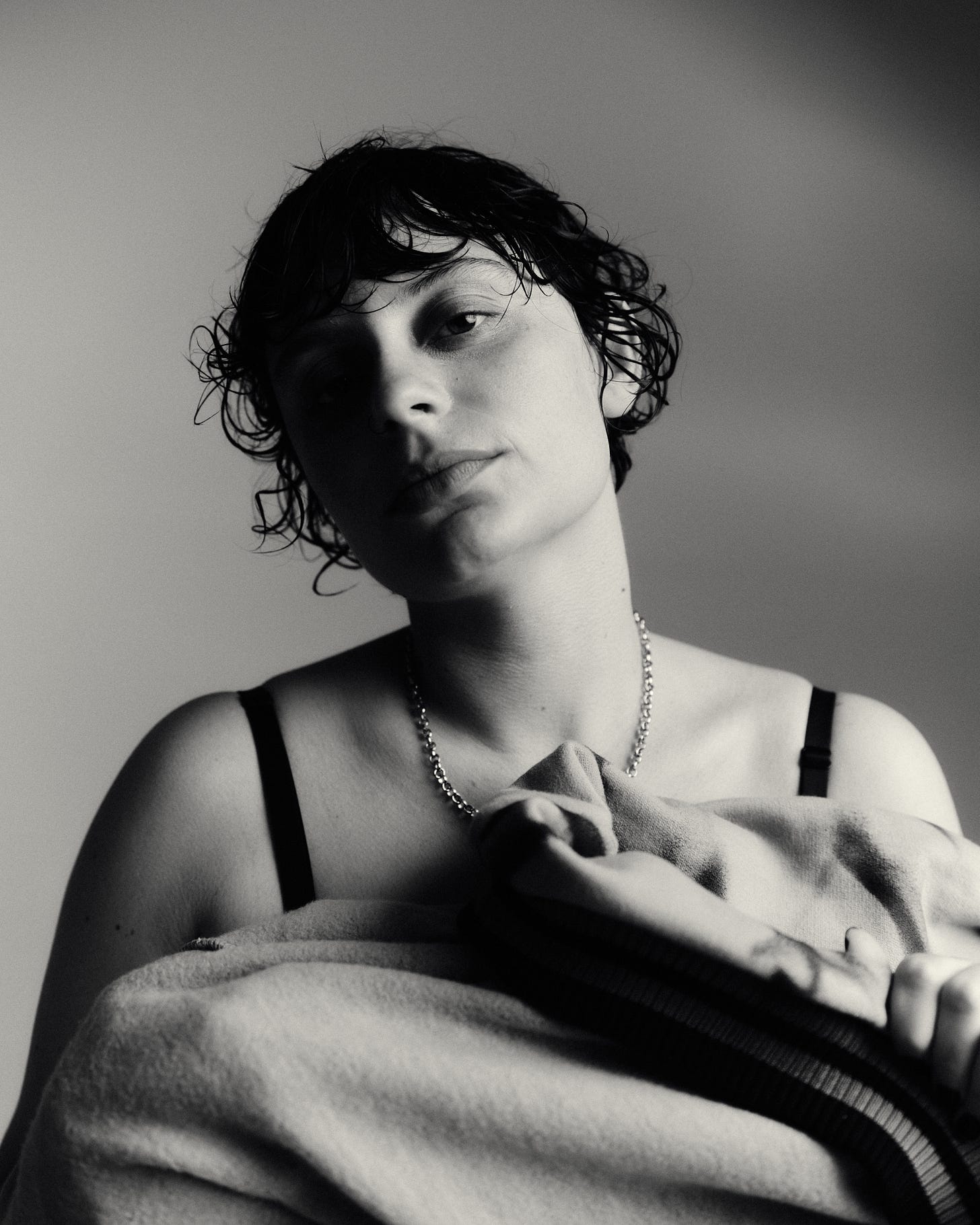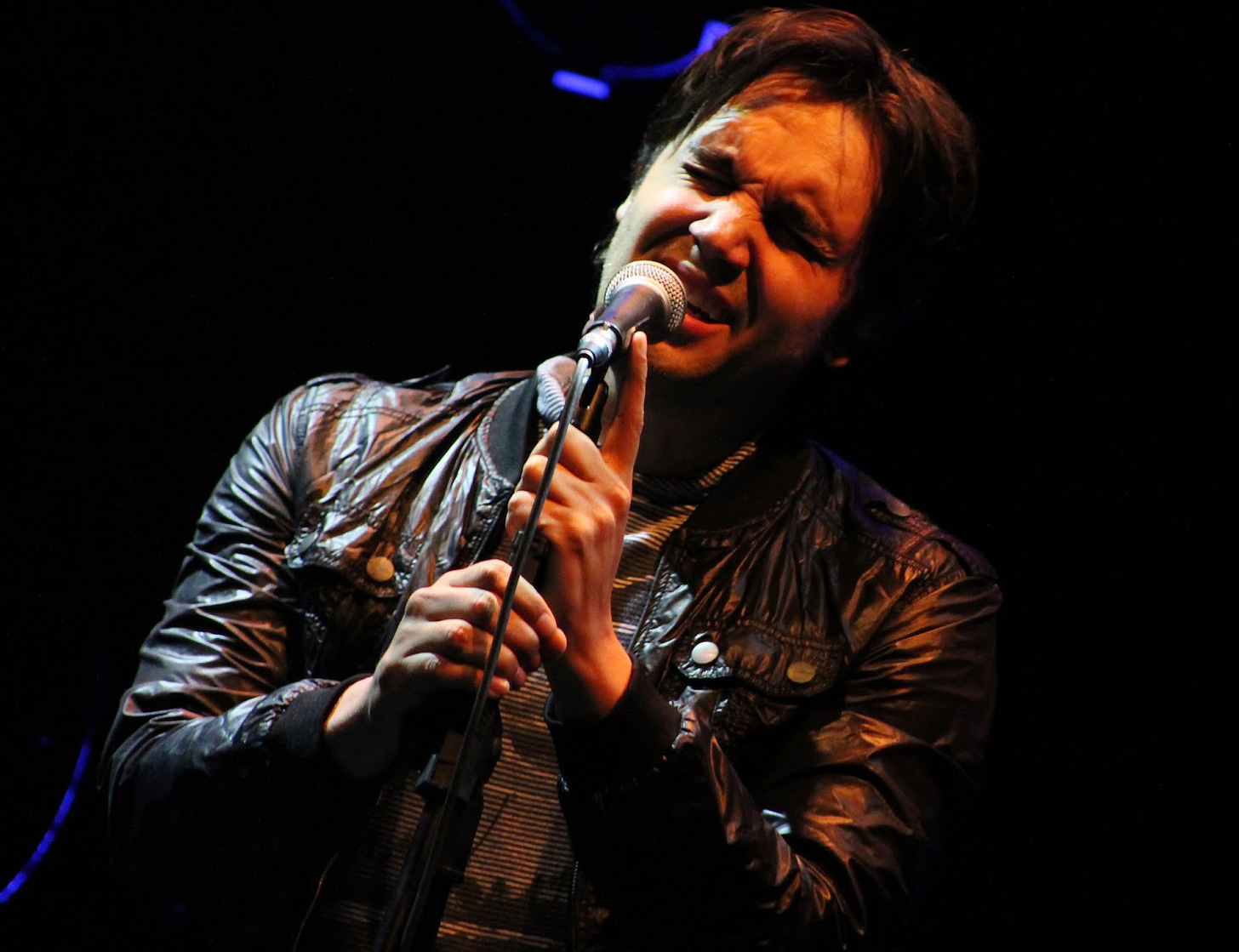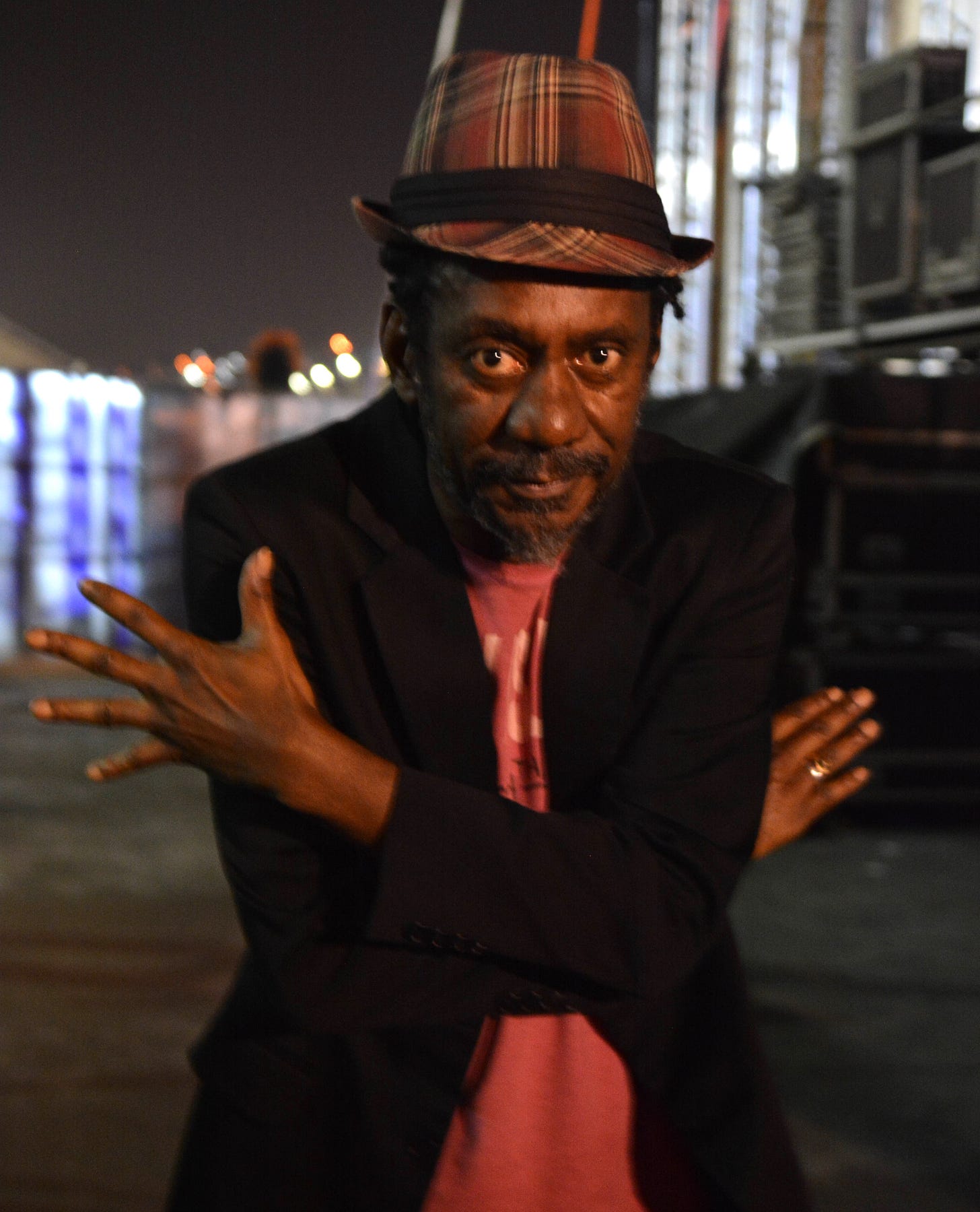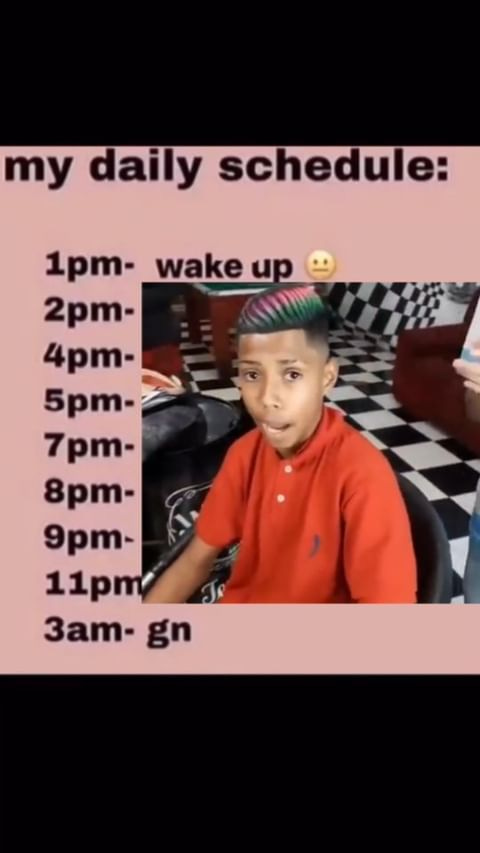Meia Volta's Issue 2 is On!
Painting a fuller picture of Brazilian music
Hello again, Brazilian music lovers <3
Co-editors Beatriz Miranda and Ted Somerville here, and welcome to issue #2 of Meia Volta!
Why Meia Volta?
In Portuguese, “meia volta” means a 180º twist toward the opposite direction. This newsletter aims to take a metaphorical "meia volta", posing a different direction to Brazilian music coverage and shedding light on the often-overlooked aspects of música brasileira.
In this issue…
Q&A with the groovy Ana Frango Elétrico, a playlist of 23 awesome Brazilian songs released in 2023, a tribute to the Brazilian music icons who passed away this year, a testimonial by rock musician Jay Vaquer, and more!
Bora lá? :)
“Life kept pulling me towards music”
Exclusive Q&A with Ana Frango Elétrico
At 26, the Rio-born musician Ana Frango Elétrico feels proud that, ever since she started, her music has grown “organically and calmly.” Eight years after she put a potential visual arts career aside to jump into music, “Me Chama de Gato Que Eu Sou Sua,” Ana’s third and latest album, was considered by Brazilian music critics one of the best Brazilian albums of 2023. Actively involved in all stages of her creative process - particularly the music production, for which she is highly respected among her peers - Ana Frango Elétrico is reaping the fruits of her good work.
Below is a Q&A based on our exclusive interview with the super Ana Frango Elétrico:
Meia Volta - How did your creative relationship with music begin? What were your first musical references, and how did you arrive at these references (people around you, travel, and personal research)?
Ana Frango Elétrico - It started during my teenage years, along with an interest in painting and poetry. I think that my musical development came primarily from poetic and pictorial routes, much more than musical ones. I started reading Salgado Maranhão, which impacted me, and then I went digging deeper and learned a cinematographic power that I feel and see in poetry. So I started reading Rimbaud, Ana Cristina César, Eucanaã Ferraz, Fernando Pessoa, and his heteronyms, Federico García Lorca, and Maya Angelou. My professional musical journey came after a decision and desire for painting and poetry, so I feel that my first musical experiences are in an experimental field that speaks directly to those other artistic fields.
MV - How did your creative involvement with music develop to the point where you became a producer?
AFE - It developed through my first album ‘Mormaço Queima’, where I had no idea how to record anything. Watching producers Thiago Nassif, Guilherme Lirio, Marcelo Callado, and Gustavo Benjão, I started to learn and hear things and timbres that I hadn't even heard before. There my process was completely sensorial and subjective, chromatic and psychedelic. And then from there, I started wanting to produce, because I think I felt that in music production I could precisely work with music in a broader, more architectural way and a place of external direction. I think I would want to work in theater direction, for example, if I didn't do music production. Then I wanted to record and produce ‘Little Electric Chicken Heart’, my second album. I learned that it is an ultra cis-masculine medium and that if I didn't gain technical knowledge I wouldn't stand a chance. So I started asking my engineering friends who had studios, mixed, etc. about everything. The internet was also fundamental in terms of research on microphones, the process, and tips from foreign engineers that I admired.
MV - What led you to study painting at college? Do you think the visual arts (and your interest in the visual arts) contribute to your musical creation? If so, in what ways?
AFE - What drove me was a desire to study classical painting, which is why I chose UFRJ (The Federal University of Rio de Janeiro). It was good while it lasted, but it didn't have a lot to do with me, and life kept pulling me towards music. But painting was and is fundamental to my work, especially as a producer, in the sense of understanding music also as an aesthetic.
MV - When and why did you want to include the English language in your music?
AFE - A genuine interest without much thought or strategy. I consume a lot of American music and have the English language as a reference, so I think it's natural to bring that to my music, even in the sense of being able to experiment with elements in production where the language and phonetics shape the content and its possibilities.
MV - Do you consider that there is a social group that identifies more with the music you produce? If so, how would you describe your predominant audience?
AFE - Whenever I think I know, I surprise myself. So, honestly, I have no idea.
MV - Your music has been gaining a lot of recognition in recent years. In addition to having already been nominated for important awards, you have recently been performing in several countries. How do you describe the experience of creating an artistic work and following its growth (more visibility, more recognition, an increasingly global audience)?
AFE - I feel pride and resilience in the sense that I have seen my work growing organically and calmly since the beginning. I'm 26 years old, and I started Ana Frango Elétrico when I was 18. I feel like everything happened calmly and slowly. I didn't have anything ultra-bombastic that radically changed my life. I feel like I am shaping and building my future with my dreams and plans.
MV - How does the music creation process work for you? Do you usually already visualize the final result: arrangements + melody + production + lyrics, or do you build one of the elements first, and the others emerge as a result of research and experimentation? Tell me a little about that.
AFE - I think it depends on my moment. Nowadays I compose a lot thinking about what I want in musical production, as in the case of "Mulher Homem Bicho", but I also have more introspective moments when a harmony comes out and I sing something from the heart. But I also really like to compose using my everyday writings.
MV - Your music is shaped by elements from many musical cultures (in terms of genres, subgenres, or aesthetics). What delights you, excites you, or interests you about working, in your creative process, with different musical cultures?
AFE - I think this is a result of my teenage years with access to the internet and having references that go and take a little from all decades of phonographic history. From mainstream to underground, findings on the internet shaped my ear.
MV - Which music artists do you like to follow today?
AFE - Many people. I'm a big fan of Tyler the Creator, Kali Uchis, Mac DeMarco, and a lot of people in Brazil that I follow and admire like Negro Leo, JOCA, Dadá Joãozinho, Dora Morelembaum, Bruno Berle, FBC, Zudizilla and much more. And I feel like I listen to a lot of Brazilian music from the past too, so obviously I'm always paying attention and following Caetano Veloso, Gilberto Gil.
MV - What musical partnerships would you like to make happen?
AFE - So many...I want to make an album that has a lot of features and collaborations, especially with rappers whom I admire a lot. Something in the Gorillaz universe.
MV - Finally, which characteristic of the universe of Brazilian music delights you most?
AFE - The phonetics and the rhythmic and harmonic richness all together.
***
23 AWESOME BRAZILIAN SONGS RELEASED IN 2023
Meia Volta has prepared a special playlist with 23 songs that can’t go unnoticed before we leave 2023 behind. Our selection includes a track from a powerful posthumous album by samba soul queen Elza Soares, funk carioca bangers, a queernejo ballad, a sentimental guitar tune by virtuoso gaucho violonista Yamandu Costa, São Paulo afrobeat, and much more. Enjoy!
BRAZILIAN SONG OF MY LIFE
In this section, Brazilian music peeps share a testimonial on one Brazilian song that touches their souls.
Today, we have the singer, songwriter, composer, and guitarist from Rio de Janeiro, Jay Vaquer.
Jay Vaquer has released ten albums, three of which were nominated for the Latin Grammy. In 2005, he released the track "Cotidiano de um Casal Feliz," reaching the top of Rio de Janeiro's radio charts. His songs have been recorded by major names in Brazilian music, such as Milton Nascimento, Toninho Horta, and Maria Gadú.
He picked “Construção”, by Chico Buarque:
“On "Construção", Chico Buarque and arranger Rogério Duprat opted for a bold approach, incorporating unconventional percussion and innovative use of wind instruments. The string arrangement also plays a crucial role in the sonic texture of "Construção." The skillful orchestration adds layers of emotion to the music, providing a rich auditory experience. The intricate lyrics of "Construção" also deserve recognition. Chico Buarque employs proparoxytones and constructs dense verses, challenging the lyrical simplicity commonly associated with popular music. This unique poetic approach contributes to the depth and sophistication of the message, making "Construção" a literary masterpiece in the form of a song. Beyond its musical and lyrical qualities, "Construção" is revered for its social and existential themes. The narrative of a worker's everyday life, combined with the bold sound, provides an artistic experience that transcends the boundaries of popular music.”
ICONS WHO LEFT US IN 2023
As we prepare to say goodbye to 2023, let’s commemorate the Brazilian music greats we bid farewell to this year. Find below the instrumentalists, singers, composers, and songwriters who brightened Brazil’s music history and are now sparkling in a different spiritual plane 💫
Rita Lee (May 9, 2023) - The first successful female rock star in Brazil, Rita stood out for her rebel spirit and vivacious performances. She was among the few women who participated in tropicália, a watershed cultural movement in the late 1960s Brazil, as well as the original lead singer of the famous psych rock band Os Mutantes before taking off on a long and massively popular solo career.
João Donato (July 17, 2023) - A multi-instrumentalist, arranger, composer, and singer, Donato gained outstanding recognition for merging elements from diverse Latin music fields in his compositions. His contributions to Bossa Nova and Latin Jazz are widely acknowledged.
“The Frog”
Leny Andrade (July 24, 2023) - Andrade is one of the reference female voices from the olden days of Rio de Janeiro - particularly regarding the samba jazz and bossa nova scenes. Her presence and voice made her friend Tony Bennett consider her “the Ella Fitzgerald of Brazil”.
Astrud Gilberto (June 5, 2023) - Possessing perhaps the most instantly recognizable voice of any Brazilian abroad in the 20th century, Astrud was the charming and melancholic singer on “The Girl From Ipanema” which won the Grammy for Best Record in 1965. She recorded several other bossa nova hits in the 60s and 70s.
Ivan Conti (April 17, 2023) - Nicknamed “Mamão" (Papaya), Conti was responsible for countless jazz-funk treasures with both his fusion band Azymuth and as a session drummer on other artists’ albums. In Loving Memory of Ivan "Mamão" Conti - One of the greatest drummers of all time
Carlos Lyra (December 16, 2023) - the last giant to pass away was Carlos Lyra. Considered a brilliant melodist from the Bossa Nova scene, Lyra helped found the genre and inputted politically engaged lyrics in the Bossa Nova aesthetics. Here is an article about Lyra that Beatriz wrote for The Guardian earlier this year.
BRAZILIAN MUSIC IN A PHOTO
In this issue, we are paying tribute to National Samba Day (December 2) with this exclusive photo of the great Luiz Melodia.
Ted Somerville: “In our Issue 1 I explained how I got to meet some samba legends backstage while at the Samba in Rio festival in 2015, including Luiz Melodia, who posed for this portrait for me. Luiz was one of Rio de Janeiro’s finest singers. He represented his neighborhood of Estacio, which is considered the cradle of samba in Rio because, back in the 1920s, it birthed the famous samba school parade. Though I was not too familiar with his work at the time, I told him how much I loved the album cover photo and art of his most famous album ‘Perola Negra’. He couldn’t have been a nicer man and was generous to give me some time to chat. I remember him telling me of his deep love of jazz and desire to visit New Orleans. Sadly, he passed away in 2017 at the age of 66 from a rare bone marrow cancer.”
MUSIC EPHEMERIS
In Brazil, December 13th marked the National Day of Forró. Developed in Northeastern Brazil, the forró culture is celebrated on the birthday of the acknowledged musician Luiz Gonzaga. With him, Northeastern genres (such as xote, xaxado, quadrilha, baião, and forró) gained consolidated space in Brazil’s cultural industry and the media. By the way, on November 8, 2023, President Lula sanctioned a law recognizing forró as an expression of the national culture.
On that note…
Meia Volta has recently interviewed an old-school forró star who composed some of the genre’s classics. Coming soon! 👀
And last, but certainly not least, we leave you with this belated Christmas present, this classic by MC Teteu:
Isn't Brazilian music fascinating? :)
If you enjoy our newsletter, help us grow Meia Volta with a donation. We appreciate your financial support. Obrigada!
Happy New Year! See you in January! 🍻






